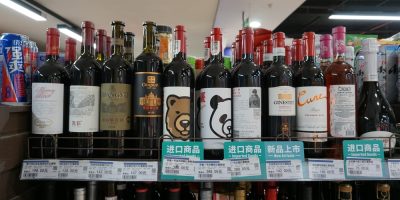-
France
France – Ban of online sales for distributors
18 December 2018
- Distribution
In a recent decision on the 24th of October 2018 (n°18-D-23), the French Competition Authority (Autorité de la Concurrence, aka AdlC) fined the Stihl company (leader in mechanized culture products) for his practices in his selective distribution network. Stihl managed to restrict the sale of its products by its authorized distributors on their own website and to prohibit them from marketing them on third-party platforms.
The ruling is considered by the AdlC as having “vocation to clarify the framework applicable in France for the different sectors and products, beyond the sole sector of the mechanized culture”.
In this case the network implemented by the supplier was a selective distribution network. Therefore, AdlC’s position can only concern the implementation of a selective distribution network and is not applicable to an exclusive distribution network (see our Update Distribution/Competition, April 2018).
-
The lawfulness of the selective distribution network
The Authority follows the traditional analysis of validity of a selective distribution network. First, it highlights that selection of resellers was based on objective criteria such as qualitative nature, applied in a uniform manner and without any discrimination.
Then, the Authority had to determine whether the qualitative criterion conditioning the lawfulness of the selective distribution system was fulfilled or not. The Authority has decided that the fact that products in question are of a delicate assembly and that some of them even present risks for safety of users, justifies setting up a network of selective distribution.
-
The lawfulness of the ban on selling technical products on third-party platforms
The decision of the AdlC was especially expected on this point because it had to take into account rulings rendered by the CJEU and then by the Paris Court of Appeal in the Coty cases ((CJUE 6/12/17, affaire 230/16; Cour d’appel de Paris, pôle 5, ch 4, 28 février 2018, n° 16/02263). The question was: the right of suppliers to prohibit their authorized distributors from distributing their products on third-party platforms is limited to luxury goods only (the Coty hypothesis) or could be extended to include others products? The hypothesis of this extension had already been addressed by other courts in Europe and also by the Advocate General before the CJEU (see our Update Distribution/Competition, December 2017) and then by the European Commission.
In a nutshell the Authority extends the Coty case law to technical products whether they are dangerous or not.
First of all, the Authority notes that “prohibition to sell on platforms contributes to preserving the safety of consumers and to guaranteeing the brand image and the quality of the products concerned”.
Then, the Authority checked whether this restriction did not go beyond what is necessary in regards to characteristics of products in question. It notes that in the case of third-party platforms, this restriction allows supplier to control that its distributors comply with requirements of distribution network.
Finally, the AdlC checked whether this prohibition was not disproportionate, and in this case, noted that there is no disproportion in so far as distribution on third-party marketplaces is not a main marketing channel for mechanized culture products.
This result (validation of the ban on the sale of products on third-party platforms) may allow many economic operators to believe legitimately that the scope of the Coty case law can be broad.
-
Prohibition of restrictions on resale of products on distributors’ websites
However the AdlC has refused to approve the clause restricting resale of products by distributors on their own websites.
In this case, if customers of the distributors could place an order online, they had to, for products with a certain dangerous nature (such as chainsaw, pruner, brushcutter, etc.) either come to withdraw the product at a (physical) sell point owned by distributor or to be delivered by the distributor. Distributor had indeed underwritten a complete obligation to “put in hand” the machine, including the oral communication of usage instructions and a demonstration.
The AdlC decided that this obligation to put in hand was actually to cancel advantages attached to Internet selling and thus to prohibit purely and simply Internet selling. According to the Authority, this restriction went beyond what is necessary to preserve consumer’s health.
The AdlC had to determine whether this restriction was a restriction by object or effect. According to the Authority, the restriction at stake reduced the ability of distributors to sell products outside their usual customers catchment area, and as such should be characterized as a competitive restriction by object.
On possible exemptions issues, the Authority first rejects the possibility of category exemption within the meaning of the EU Block Exemption Regulation No 330/2010, the anti-competitive practice being comparable to a restriction characterized by passive sales within the meaning of Article 4, para. (c). Possibility of an individual exemption was also rejected by the Authority after examining any efficiency gains related to this “put in hand” obligation.
The Authority could have taken advantage of this particular case, to refine the Pierre Fabre / Bang & Olufsen case law and validate and update sales restrictions on the Internet when the proper nature or quality of products justifies such a restriction.
In summary, the marketing of products involving high technicality or which tend to be dangerous by using it:
- justifies the implementation of a selective distribution network;
- may be prohibited on third party platforms (if the selective distribution network is considered lawful);
- could not be restricted on the websites of authorized distributors of a lawful selective network, for lack of “efficiency gain” in favor of consumers, according to a very (too?) strict position of the AdlC.
On this last point, it will probably be necessary to wait for a clearer solution given by the Court of Appeal of Paris (in front of which a recourse is now pending) or the Court of Cassation.



























